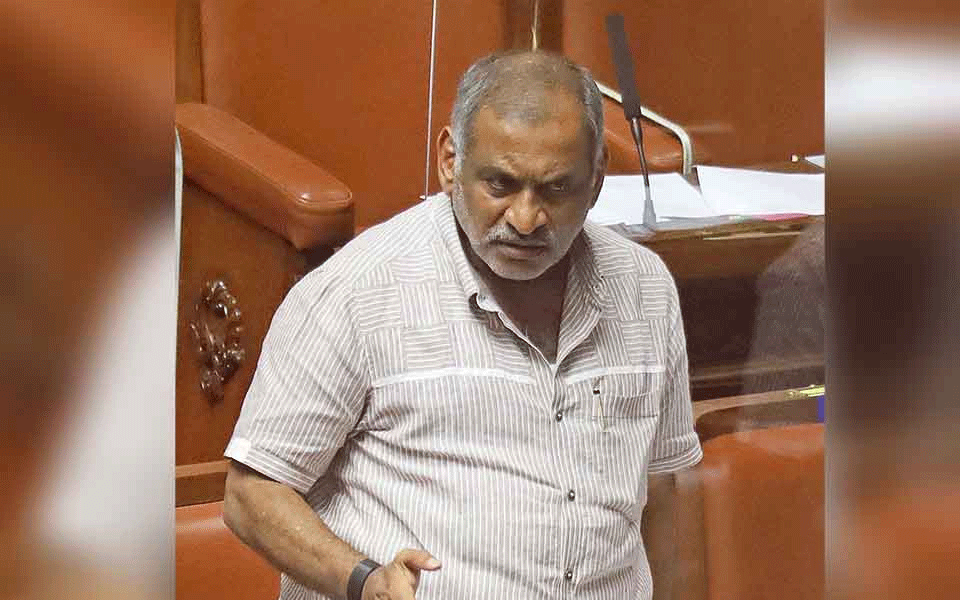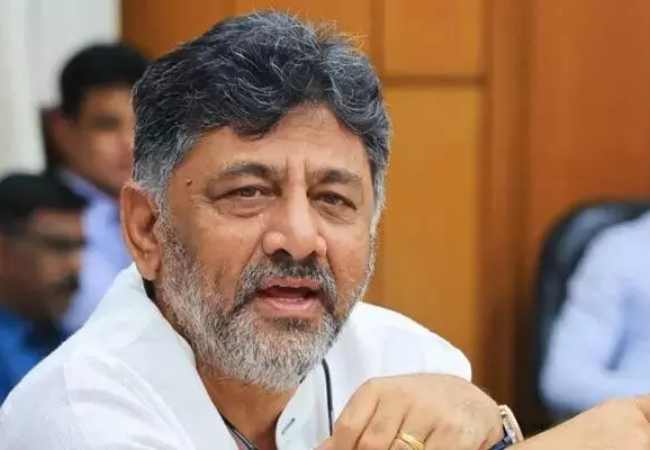Bengaluru (PTI): The Karnataka Cabinet on Thursday decided to promulgate an ordinance increasing the Scheduled Caste and Scheduled Tribe (SC/ST) reservation in the State.
The Cabinet on October 8 accorded its formal approval to increase the SC/ST quota. The ordinance, once promulgated after the Governor's assent, will increase reservations for SCs from 15 to 17 percent and for STs from 3 to 7 percent.
This will, however, take the reservation tally in Karnataka to 56 percent, above the 50 percent cap fixed by the Supreme Court in the Indira Sawhney judgement.
Hence the government would recommend bringing the quota hike under the 9th Schedule of the Constitution to give it legal protection, in the days to come.
"Following the decision to enhance the SC/ST reservation, we introduced a bill to this effect before the cabinet, and it was decided to send it to the Governor to promulgate an ordinance," Law and Parliamentary Affairs Minister J C Madhuswamy told reporters here after the cabinet meeting.
The government had earlier decided to issue an executive order hiking the quota.
"We had earlier felt that executive decision would be enough, but later realised that if it is questioned in court of law, it may lead to issues, so we have decided to bring in an ordinance," the Minister said in response to a question.
The ordinance justifies the hike in reservation with a detailed note citing various sections of the Constitution, Madhuswamy said.
"We have stressed that there were only six castes in Karnataka under SC earlier, to which now 103 castes, nomads and slum-dwellers have been added, so the population has enormously raised, and as the Constitution calls for adequate representation we will have to give about 17 percent reservation for SCs, hence the decision," he explained.
Similarly, following the inclusion of various communities like Nayakas and Naiks to ST, there is an enormous addition to their population, and as they account for about 7 percent, their reservation has been hiked accordingly, he added.
The decision to increase SC/ST quota was following the recommendation from a commission headed by a retired judge of Karnataka High Court Justice H N Nagamohan Das.
Let the Truth be known. If you read VB and like VB, please be a VB Supporter and Help us deliver the Truth to one and all.
Bengaluru (PTI): Karnataka has proposed a new Information Technology Policy for 2025–2030, offering extensive financial and non-financial incentives aimed at accelerating investments, strengthening innovation and expanding the state's tech footprint beyond Bengaluru.
The Karnataka Cabinet gave its nod to the policy 2025–2030 with an outlay of Rs 445.50 crore on Thursday after the Finance Department accorded its approval.
The policy introduces 16 incentives across five enabler categories, nine of which are entirely new, with a distinctive push to support companies setting up or expanding in emerging cities.
Alongside financial support, the government is also offering labour-law relaxations, round-the-clock operational permissions and industry-ready human capital programmes to make Karnataka a globally competitive 'AI-native' destination.
According to the policy, units located outside Bengaluru will gain access to a wide suite of benefits, including research and development and IP creation incentives, internship reimbursements, talent relocation support and recruitment assistance.
The benefits also include EPF reimbursement, faculty development support, rental assistance, certification subsidies, electricity tariff rebates, property tax reimbursement, telecom infrastructure support, and assistance for events and conferences.
Bengaluru Urban will receive a focused set of six research and development and talent-oriented incentives, while Indian Global Capability Centres (GCCs) operating in the state will be brought under the incentive net.
Incentive caps and eligibility thresholds have been raised, and the policy prioritises growth-focused investments for both new and expanding units.
Beyond incentives, the government focuses on infrastructure and innovation interventions.
A flagship proposal in the policy is the creation of Techniverse -- integrated, technology-enabled enclaves developed through a public-private partnership model inside future Global Innovation Districts.
These campuses will offer plug-and-play facilities, artificial intelligence and machine learning and cybersecurity labs, advanced testbeds, experience centres, and disaster-resistant command centres.
There will also be a Statewide Digital Hub Grid and a Global Test Bed Infrastructure Network, linking public and private research and development, and innovation facilities across Karnataka.
The government has proposed a Women Global Tech Missions Fellowship for 1,000 mid-career women technologists, an IT Talent Return Programme to absorb experienced professionals returning from abroad, and broad-based skill and faculty development reimbursements.
Shared corporate transport routes in Bengaluru and tier-two cities will be designed with Bengaluru Metropolitan Transport Corporation and other transport entities to support worker mobility.
The government said the policy is the outcome of an extensive research and consultation process involving TCS, Infosys, Wipro, IBM, HCL, Tech Mahindra, Cognizant, HP, Google, Accenture and NASSCOM, along with sector experts and stakeholder groups.
It estimates an outlay of Rs 967.12 crore over five years, comprising Rs 754.62 crore for incentives and Rs 212.50 crore for interventions such as Techniverse campuses, digital grid development, global outreach missions and talent programmes.





